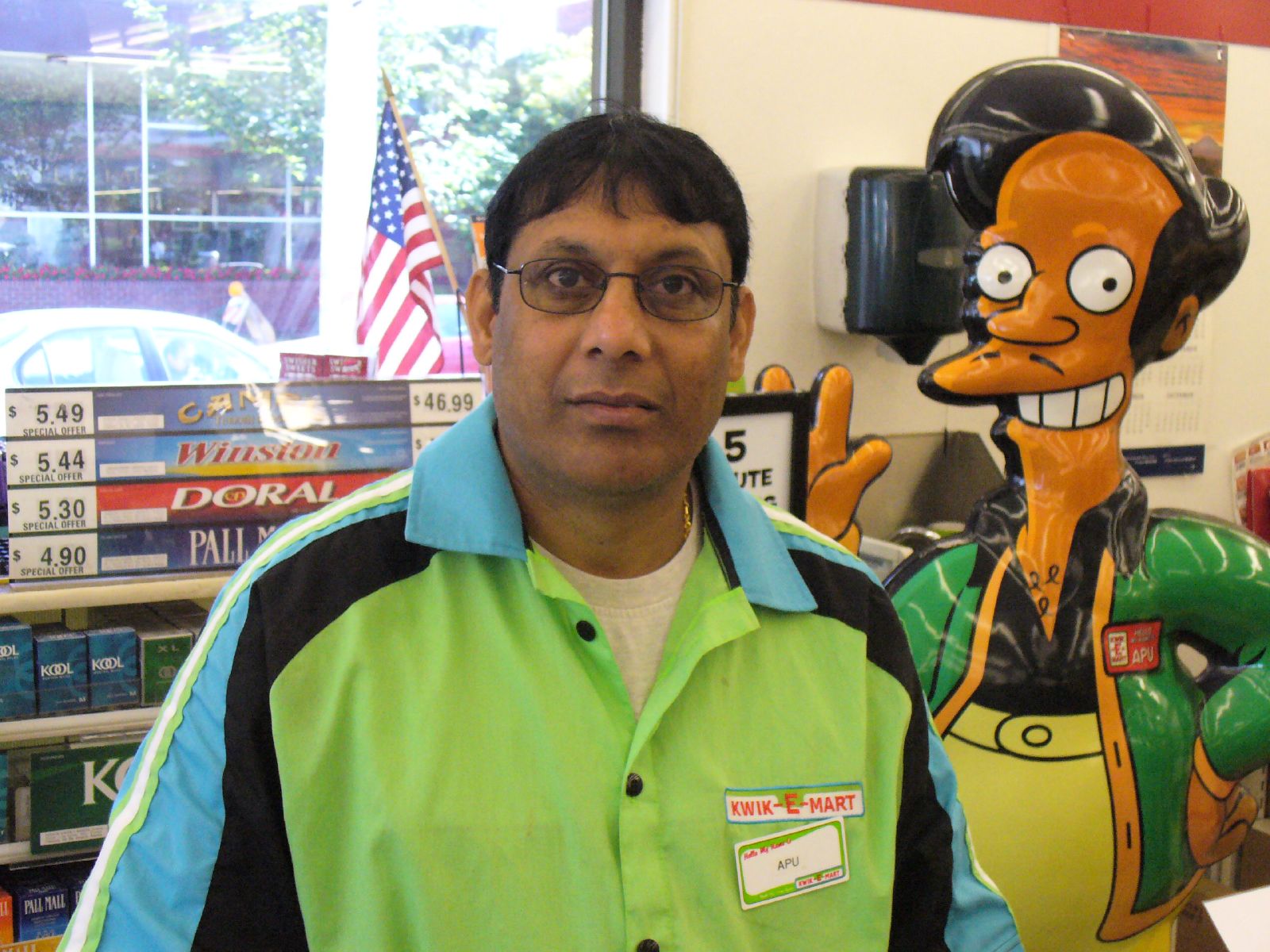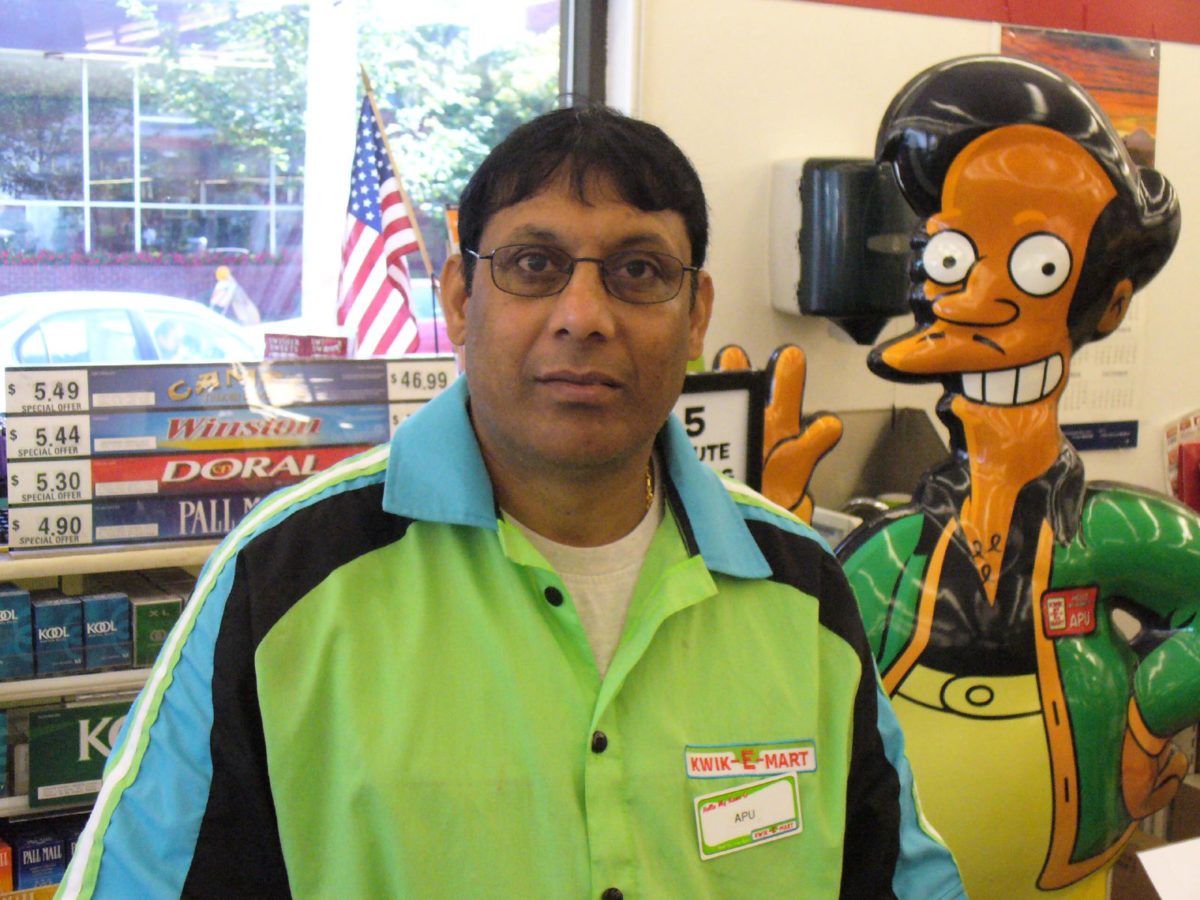

Pretending to Be Offended
Would somebody please tell me when we all became so damn sensitive about absolutely everything? Just when did we forget to laugh at life’s little absurdities every once in a while and recognize that satire encourages a healthy dialogue on the stereotypes it relies upon? The recent Simpsons controversy surrounding their Indian character Apu is just the latest example of political correctness spiraling beyond its original positive intent and reaching out to criticize a harmlessly humorous stereotype that could instead be seen as a much-needed impetus for discussions on genuine racial issues.
The entire issue stems from The Problem With Apu, a documentary by comedian Hari Kondabolu released in November that describes the way Apu has shaped widespread perceptions of South Asians. This was followed by comments Hank Azaria, the actor who voices Apu, made during an interview on the Stephen Colbert show in which he stated his remorse for the character and willingness to give up voicing him. But Simpsons creator Matt Groening has made his retort known through the show itself and in public interviews. In an episode entitled “No Good Read Goes Unpunished”, Lisa, who is often charged with being the show’s voice of reason, says, “Something that started decades ago and was applauded and inoffensive is now politically incorrect. What can you do?” before the camera pans to a framed photo of Apu signed, “Don’t have a cow!” This reignited the controversy, but it was Groening’s personal comments that really rubbed folks the wrong way as he suggested afterwards that, “I think it’s a time in our culture where people love to pretend they’re offended.” Well, I’m not so sure these people are pretending to be offended, but I really have to suggest that they might just be getting offended when they really don’t need to be.
Just what are these critics so distressed about in the portrayal they feel defines them with Apu? Apu is a respectable member of the Springfield community, a man who has carved out a good and prosperous life for himself by owning and maintaining an independent business. He is a faithful husband to a lovely wife and a devoted father to his children. A number of episodes over the years have focused on Apu, and he has generally been shown to be an honorable man and a loyal friend. This is, of course, in contrast to the stereotype the show has for middle aged American white men in the show’s absurdly flawed and morally bereft protagonist Homer Simpson. Ok, Apu owns a convenience store and has a thick accent. Is this really something to get your knickers all in a bunch about? We never want to allow humor based on stereotypes to be truly derogatory, but isn’t that the line? If the portrayal might have a shred of comedic truth, but isn’t actually offensive in nature, can we all agree to just sit back and have a good-natured belly laugh every once in a while?
Failing to do so leaves us forgetting the impact brilliantly-crafted satire, like the Simpsons, can have on facilitating dialogue and thus moving society forward in its aspirations of creating a more tolerant and accepting culture. Satire uses stereotypes to expose the imbalances, limitations and misperceptions that surround racial or cultural identity. Have you been in a convenience store recently? Depending perhaps on your geographical location, if you have been in enough of them over the years, you will note a striking cultural phenomenon: The percentage of owners of those establishments who happen to be of Indian descent, while by no means reaching anywhere near a hundred percent, is significantly higher than the numbers for Indian people in the general population. You can dispute that all you like, but I will absolutely guarantee you that those numbers bear out over the United States population as a whole. That’s where a stereotype comes from: a little kernel of truth. So what do you want to do: cry about it or have an impactful discussion about the real issues surrounding folks immigrating from India that lead them to that vocation over some other possibilities?
In some respects, every character in the Simpsons is a satirical commentary on a various segment of our population. Do we have aspects that define us as various ethnic and cultural groups? Of course we do. Otherwise, we wouldn’t be groups at all. Do we also have quirks that make us who we are and define the human aspect of our identity? I sure hope we do. White people can’t dance. Irish folks drink a bit. Indian folks tend to own convenience stores more than the rest of us. Is it universally true? Of course not. There are always exceptions to what is in this case not even really a rule but rather more of a tendency. And that individuality within the racial tendencies is equally a part of the grand tapestry that makes our lives so vastly complicated and interesting. Can’t we just laugh at that a bit and then have a healthy talk about what makes these humorous idiosyncrasies so? I, for one, don’t want my kids growing up in a world where they are so guarded, so scared to even broach the subject of race and how it might impact cultural patterns that the topic inevitably just becomes verboten altogether. What moved our racial discussions forward and helped the cause of exposing and ameliorating racial injustice in this country was not throwing it back into the closet to never be talked about again, but rather through tough questions posed by such provocative satires as All in the Family and The Jeffersons which openly challenged the societal norms and expectations that defined their era. For twenty-nine years now, The Simpsons has been doing much the same as it has served as a satirical glance into modern American life. To silence the voice of one of their longest-running characters now in the midst of this controversy would amount to just one more door being violently shut on the constructive dialogue we really need to have in this country.
Steven Craig is the author of the best-selling novel WAITING FOR TODAY, as well as numerous published poems, short stories, and dramatic works. Read his blog TRUTH: in 1000 Words or Less every THURSDAY at www.waitingfortoday.com




